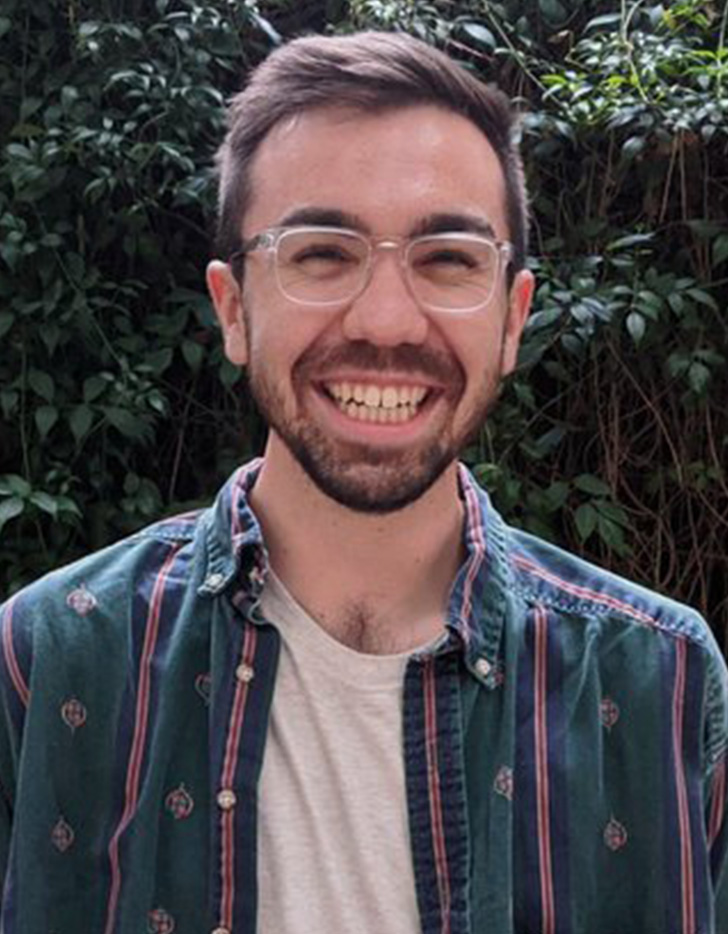
Jon Bingaman (any pronouns)
PhD student, chemical engineering
Jon Bingaman is a second-year chemical engineering PhD student at UCSB, who identifies as queer. He arrived at UCSB after earning his bachelor’s degree in chemical engineering from the University of Pittsburgh. Co-advised by chemical engineering professors Rachel Segalman and Susannah Scott, his research is focused on converting waste plastic to commercial chemicals and products. Specifically, he investigates how to use mechanical forces to enhance the catalytic degradation of plastics. After completing his PhD, Bingaman plans to continue to address the plastics crisis at a national laboratory or in industry.
COE: What does Pride Month mean to you as a member of the LGBTQIA+ community, and does it feel more important to observe and recognize it given all of the anti-LGBTQIA+ legislation being introduced across the nation?
JB: As a queer person and someone who practices the art of drag, it’s disheartening to see all the anti-LGBTQIA+ legislation as of late. Pride is important because it gives our community a sense of strength to see all of our members and allies coming together, especially during uncertain times.
COE: Why did you agree to share your story and participate in this project that celebrates Pride Month within the COE?
JB: In my undergrad engineering school, it was pretty isolating as a queer and gender-fluid person. I had very few queer faculty members and no queer grad students to look up to, so I wasn’t sure if graduate school was a good fit for me. I just want everyone to know that we are here, and we can do it.
COE: What do you want people to learn or gain from reading the profiles on this page?
JB: If you’re queer, we’re here to help you and support you. If you’re an ally, support your queer peers. If you have any kind of power, use it to help others. And most importantly, VOTE and don’t let this harmful legislation deter you from speaking up.
COE: How welcoming and inclusive have you found UCSB, the College of Engineering, and your department communities to be as a member of the LGBTQIA+ community?
JB: When choosing to come to UCSB for grad school, it was inspiring to see not only openly queer graduate students, but an openly gay faculty member (Prof. Scott Shell), because visibility provides comfort. Since starting at UCSB, I was happy to find the Queer & Trans Grad Student Union (QTGSU) who have allowed me to help organize queer-centered events for students like myself. I am also impressed by all the work done by the Resource Center for Sexual and Gender Diversity (RCSGD), which runs a mentorship program that connects queer faculty, staff, grad students, and undergraduates, and that I have had the fortune to take part in.
COE: What could the college or university do to improve the environment?
JB: I think it would be great to make the university a safer space for intersectional voices. While there is visibility for queerness on campus, it is primarily comprised of cisgender and white students. Visibility is important for everyone, and the faculty population should reflect the students. Hiring queer/trans BIPOC faculty and listening to queer/trans BIPOC students’ needs and concerns is an important step towards progress.

